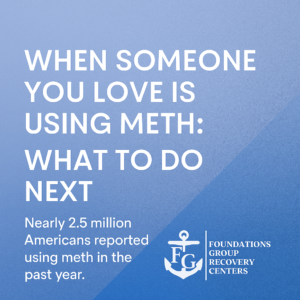I never thought we’d be here. I’m not sure any parent ever thinks they will be. But meth doesn’t ask permission—it shows up, often quietly at first, then suddenly all at once. I’m writing this not as a counselor or a clinician, but as a mom who’s lived through the heartbreak, the fear, the confusion, and the slow return to hope.
If you’re reading this because you suspect—or know—that someone you love is using meth, I want you to know: you’re not alone. And there are things you can do, even when everything feels out of your control.
This checklist isn’t about fixing it all at once. It’s about grounding yourself, understanding the terrain, and taking one next right step. Here’s what helped me. I hope it helps you too.
1. Learn the Signs of Meth Use (Even the Subtle Ones)
Meth doesn’t always look like the dramatic scenes you see on TV. In the early stages, it might just look like energy, erratic sleep, or sudden mood swings. But over time, the signs become harder to ignore.
Signs of Possible Meth Use:
- Sudden weight loss or intense lack of appetite
- Enlarged pupils, rapid speech, or jittery behavior
- Staying awake for unusually long periods
- Picking at skin or hair, often causing sores
- Dramatic shifts in mood, especially paranoia or aggression
- A new circle of friends, secrecy, or lying about whereabouts
- Missing money or valuables without explanation
You don’t have to diagnose them. You just need to notice. Awareness is your first tool—not to control them, but to understand what’s happening so you can respond with clarity, not panic.
2. Check for Immediate Safety—Theirs and Yours
This part is hard. If they’re high right now, or if things feel unpredictable, your instinct may be to step in and “handle” it. But meth can cause severe agitation and paranoia. That means your safety—and theirs—depends on staying calm, setting clear limits, and not escalating.
If You’re Worried About Immediate Safety:
- Give them space if they’re agitated or aggressive
- Avoid trying to reason with them when they’re high
- Remove other children or vulnerable people from the area if needed
- Don’t threaten, confront, or issue ultimatums during a crisis
- Call for medical or emergency help if someone is in danger
You are not failing by protecting your own safety. In fact, keeping yourself steady is one of the most loving things you can do.
3. Get Educated Without Shame
The more I learned about meth addiction, the less scared I felt. Yes, the reality is hard. But facts gave me something to hold onto. I realized this wasn’t just about willpower—it was about brain chemistry, trauma, and survival.
Start With Reliable, Parent-Friendly Sources:
- Meth addiction treatment in Massachusetts
- Massachusetts Substance Use Helpline (helplinema.org)
- The Partnership to End Addiction (drugfree.org)
Look for info that doesn’t use scare tactics or blame. The goal isn’t to terrify you—it’s to help you understand what recovery can look like, even if it takes time.
4. Build a Support System (for Both of You)
You cannot do this alone. And you shouldn’t have to. Whether your child is 17 or 27, they’re still your child—and your love for them hasn’t changed. But loving someone through meth addiction will exhaust every corner of your heart if you’re not getting support too.
Consider:
- Family therapy or support groups like Al-Anon or SMART Recovery Family & Friends
- Talking to a counselor who specializes in substance use (for you, not just them)
- Keeping one or two trusted people in your circle updated so you don’t isolate
- Looking into intervention or case management support if things escalate
The goal here isn’t to force recovery—it’s to create stability so that when they’re ready, the road is clear.
5. Be Ready with Treatment Options When the Window Opens
There will be moments—sometimes brief—when they’re tired, scared, or just open enough to consider help. You won’t always get advance notice. Having a treatment option already researched can mean everything.
If you’re in Massachusetts, Foundations Group Recovery Center offers meth addiction treatment designed to meet people where they are—with care that respects both the urgency and the fear of starting recovery.
You can call Foundations Group Recovery Center at (844) 763-4966 to learn more about what’s available near you. Whether you need outpatient support, medication management, or family guidance, they’ll help you understand the next step.
FAQ: Parents and Meth Addiction Treatment
What is meth addiction treatment, and does it really help?
Meth addiction treatment typically includes behavioral therapy, structured support, and sometimes medication to manage symptoms. Recovery is possible, though it’s often not linear. Compassionate, evidence-based care can help people rebuild their lives.
How do I talk to my child about getting help?
Choose a calm moment. Express concern, not control. Say things like: “I’m scared because I love you” or “You don’t have to figure this out alone.” Avoid threats or guilt. Focus on care and choice.
What if they say no to treatment?
That’s common. Don’t panic. Keep the door open. Stay consistent in your love and your boundaries. Let them know where help is if they ever want it. Your job isn’t to convince—it’s to remain steady.
Can I get support even if they don’t want help?
Yes. In fact, you should. Family support is part of the recovery process whether your loved one is in treatment or not. Getting support for yourself can help you stay healthy, clear-headed, and grounded.
Is there meth addiction treatment in Massachusetts that works with families?
Yes. Foundations Group Recovery Center provides family-inclusive care for meth addiction and other substance use issues. They understand how deeply this affects parents and work with you—not around you.
You’re Not Powerless—Even When It Feels That Way
There were days I felt like I was just holding my breath, waiting for a call. But there were also days I remembered: I can love them without losing myself. I can learn. I can prepare. I can hope.
If you’re walking this road, know this: it doesn’t mean you failed. It means you’re human. It means you love deeply. And that love—when paired with information, boundaries, and real support—can be one of the most powerful forces in recovery.
📞 Need to talk it through?
Call Foundations Group Recovery Center at (844) 763-4966. You don’t have to figure this out alone.


